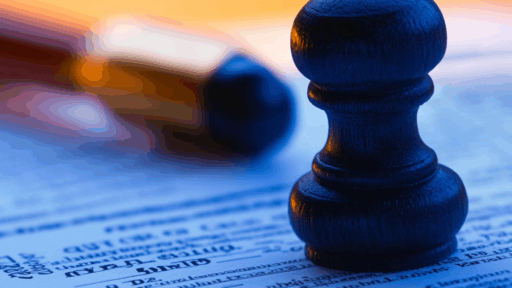You need a document notarized and you’re wondering if your Chase Bank branch can handle it. The short answer: yes, most Chase branches offer notary services, though availability varies by location.
Chase has thousands of branches across the country, and many have a notary public on staff who can notarize documents for customers. Whether you’re dealing with a power of attorney, real estate documents, or affidavits, knowing what Chase offers and how to access their notary services can save you time.
Here’s what you need to know about getting documents notarized at Chase Bank, but first if you’d like to skip the driving and lines, you can get your notarized right away at the link below.
Understanding Document Notarization
Notarization is the process where a notary public—a state-commissioned official—witnesses your signature and verifies your identity. The notary confirms three things:
- You are who you claim to be (they check your ID)
- You’re signing willingly (not under pressure or coercion)
- You understand what you’re signing
The notary doesn’t verify whether what’s written in the document is true. They’re just confirming that you, the identified person, signed it knowingly and voluntarily.
Common documents requiring notarization:
- Real estate deeds and mortgages
- Power of attorney forms
- Affidavits and sworn statements
- Estate planning documents (wills, trusts)
- Loan documents
- Business contracts
Notarization helps prevent fraud by creating an official record that someone actually signed a document. It’s required for many legal and financial transactions, particularly those involving large sums of money or property transfers.
Chase Bank is one of the largest financial institutions in the United States, offering comprehensive banking services to millions of customers.
Chase Bank Services Overview
Chase provides standard banking products including:
- Checking and savings accounts with various tiers and features
- Credit cards for personal and business use
- Home mortgages and auto loans for major purchases
- Investment and retirement accounts through Chase Wealth Management
- Business banking for small businesses and corporations
- Digital banking through their mobile app and online platform
Chase’s extensive branch network means most customers have convenient access to in-person banking services when needed.
Notary Services at Chase
Many Chase branches have notary services available, typically during regular banking hours. Here’s what you should know:
Availability varies by branch. Not every Chase location has a notary on staff. Larger branches in urban areas are more likely to offer notary services than smaller suburban or rural branches.
Account holders usually get free service. If you have a Chase checking or savings account, notary services are typically free. Non-customers may be charged a fee, usually $5-15 per signature depending on state law.
Appointments may be required. Some branches handle notarizations on a walk-in basis. Others require you to schedule an appointment. Call ahead to avoid wasting a trip.
Notaries work during branch hours. Don’t expect after-hours or weekend notary service at Chase branches. Their notaries work standard banking hours, typically Monday through Friday 9 AM to 5 PM, with some Saturday hours.
Bring valid ID. You’ll need a government-issued photo ID like a driver’s license, passport, or state ID card. The name on your ID must match the name on the document you’re signing.
Documents must be unsigned when you arrive. Don’t sign the document before meeting with the notary—they need to watch you sign it.
Discover the Power of BlueNotary:
Integrate your Business, Title Company, or Law Firm to Satisfy your Customers and Decrease Turnaround
Get a document Notarized/Sign-up
Join the Free Notary Training Facebook Group
How to Get Documents Notarized at Chase
Follow these steps to use Chase’s notary services:
1. Call your local branch first. Confirm they have a notary available and ask about their hours and whether you need an appointment. This saves you from showing up when the notary is out or unavailable.
2. Gather your documents. Have all documents ready but don’t sign them yet. Make sure they’re complete except for your signature and any dates that need to be added during notarization.
3. Bring valid identification. A current driver’s license, passport, or state-issued ID card works. Expired IDs from within the last few years might be acceptable depending on state law, but bring current ID if possible.
4. Go to the branch. Arrive during business hours or at your scheduled appointment time. Tell the staff you need notary services and they’ll direct you to the notary.
5. The notary verifies your identity. They’ll check your ID against the name on the document and may ask you a few questions to confirm you understand what you’re signing.
6. Sign in front of the notary. The notary watches you sign, then applies their stamp and signature to the document.
The whole process usually takes 10-15 minutes for straightforward documents. More complex notarizations might take longer.
Alternatives If Chase Doesn’t Have Notary Services
If your Chase branch doesn’t offer notary services or their notary isn’t available when you need one, you have other options:
Other banks. Wells Fargo, Bank of America, and other major banks often provide notary services for account holders. Call to check availability.
UPS Stores and FedEx Office. Most locations have notaries and charge $10-15 per signature. No appointment needed in most cases.
Shipping and office supply stores. Beyond UPS and FedEx, some independent shipping stores offer notary services.
Public libraries. Some public libraries have notaries available during certain hours, often for free or a minimal fee like $2-5.
County clerk or city hall. Government offices sometimes provide notary services to the public. Hours may be limited.
Mobile notary services. Notaries who come to your location for a fee, typically $75-150 including travel charges. Good for people who can’t easily leave home.
Online notary services. Remote online notarization via video call costs $25 and works for most document types completely legal.
Each option has different costs, hours, and requirements, so compare based on your needs and timeline.
Preparing for Your Notarization Appointment
Make the process smooth by being prepared:
Confirm the branch offers notary services. Don’t assume—call first.
Check if you need an appointment. Some branches require scheduling while others take walk-ins.
Have all documents ready. They should be completely filled out except for signatures and dates that will be added during notarization. Blank spaces or missing information can prevent the notary from proceeding.
Bring valid ID. Government-issued photo identification that matches the name on your document.
Know if there’s a fee. Chase typically offers free notarization to account holders, but confirm this when you call.
Allow enough time. Don’t schedule your appointment right before the branch closes or when you have another commitment immediately after.
Bring all signers if multiple people need notarization. Everyone who needs to sign must be present with their ID.
Being prepared prevents delays and ensures your documents are notarized correctly the first time.
Conclusion
Chase Bank offers notary services at many of its branches, typically free for account holders. While not every location has a notary on staff, the bank’s large branch network means most customers can find convenient access to notarization services.
Call your local Chase branch to confirm notary availability, hours, and whether you need an appointment. If your branch doesn’t offer notary services, alternatives like other banks, UPS Stores, or online notary platforms can meet your needs.
Having multiple options for notarization means you can choose what’s most convenient based on your location, schedule, and budget.
Frequently Asked Questions
What is the purpose of document notarization?
Notarization verifies the identity of signers and confirms they’re signing a document willingly and knowingly. It helps prevent fraud by creating an official record that the signature is legitimate. The notary doesn’t verify if the document’s contents are true—just that you are who you claim to be and that you signed it.
Does Chase Bank offer notary services?
Yes, many Chase branches have notary services available. Not all locations offer it, so call your local branch to confirm. Ask about their notary’s hours and whether you need an appointment.
Are Chase notary services free for account holders?
Usually yes. Chase typically provides free notary services to customers with checking or savings accounts. Non-customers may be charged a fee, typically $5-15 per signature depending on state regulations. Confirm the fee policy when you call your branch.
What identification do I need for notarization at Chase?
Bring a valid government-issued photo ID such as a driver’s license, passport, or state ID card. The name on your ID must match the name on the document being notarized.
Can non-account holders get documents notarized at Chase?
Possibly. Some Chase branches will notarize documents for non-customers, though they’ll likely charge a fee. Call the branch beforehand to confirm they serve non-customers and ask about fees.
Do I need an appointment for Chase notary services?
It depends on the branch. Some locations accept walk-ins, while others require appointments. Call your local Chase branch to find out their policy and schedule a time if needed.
What if my Chase branch doesn’t have notary services?
Try other banks like Wells Fargo or Bank of America, visit UPS Store or FedEx Office locations (usually $10-15), check public libraries or city hall for low-cost options, use a mobile notary service ($75-150), or try online notarization platforms ($25-40).
Can I get documents notarized online instead of in person?
Yes. Remote online notarization lets you get documents notarized via video call with identity verification. It costs around $25-40 and is legal in most states. Services like Notarize and Proof offer this option.








